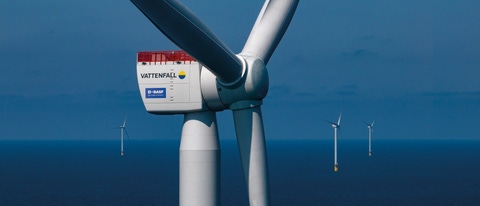Monomers
Ultramid® LowPCF and ZeroPCF
Reducing product carbon footprint without compromising on quality and performance
Meet Ultramid® LowPCF and Ultramid® ZeroPCF, our lines for products with reduced and even net zero product carbon footprints
With Ultramid® LowPCF (reduced CO2 footprint/“Product Carbon Footprint”, PCF**) and Ultramid® ZeroPCF* (CO2 footprint of net zero greenhouse gas emissions), we offer two new product variants within our polyamide value chain in Europe. Greenhouse gas emissions can be reduced when compared to conventional products.
With this portfolio, we meet the increasing demand to reduce greenhouse gas emissions in the industry and are helping our customers support you to achieve their your sustainability goalsemission reduction targets.
Why wait for carbon neutral by 2050 when it’s available now?
Renewable energy:
Electricity from renewable sources is used to manufacture the LowPCF products, including from the Hollandse Kust Zuid offshore wind farm in the North Sea, in which BASF has a stake. Furthermore, low-emission steam is generated by using certified biomethane instead of natural gas.
Smaller product carbon footprint:
Ultramid® LowPCF and Ultramid® ZeroPCF products have a smaller product carbon footprint compared to conventional fossil-based products. The cradle-to-gate PCF is calculated according to Together for Sustainability methodology.
Virgin-quality output:
Ultramid® LowPCF and Ultramid® ZeroPCF products have the exact same properties as conventional materials produced with less than 100% renewable energy.
Drop-in solution:
Never change a running system! You can process our LowPCF and ZeroPCF products in the same reliable way as our conventional products. You can use them in applications with high demands on quality, hygiene, and performance, be it in food packaging, yarns, compounds for automotive applications and many more.

LowPCF: Compared to common industry benchmarks, the PCF from raw material extraction to the factory gate (“cradle-to-gate”) is reduced by at least 30%. This PCF reduction enables you to reduce your Scope 3.1 emissions in accordance with the Greenhouse Gas Protocol.
ZeroPCF: Both the mass balance procedure, by which the proportion of recycled renewable feedstock is attributed to the product, and Ultramid® ZeroPCF products themselves are certified by independent auditors, such as ISCC PLUS.
You can find all details about the available Ultramid® LowPCF and Ultramid® ZeroPCF products on our customer portal:

We are the first company in the world to offer both LowPCF and ZeroPCF options in the polyamide 6 value chain. With this portfolio, we meet the increasing demand in the industry and are helping our customers to achieve their sustainability goals.

Packaging & Extrusion
Textiles
Feel free to contact us!
Let’s discuss how we can support you in developing high-quality and sustainable solutions for your business.
